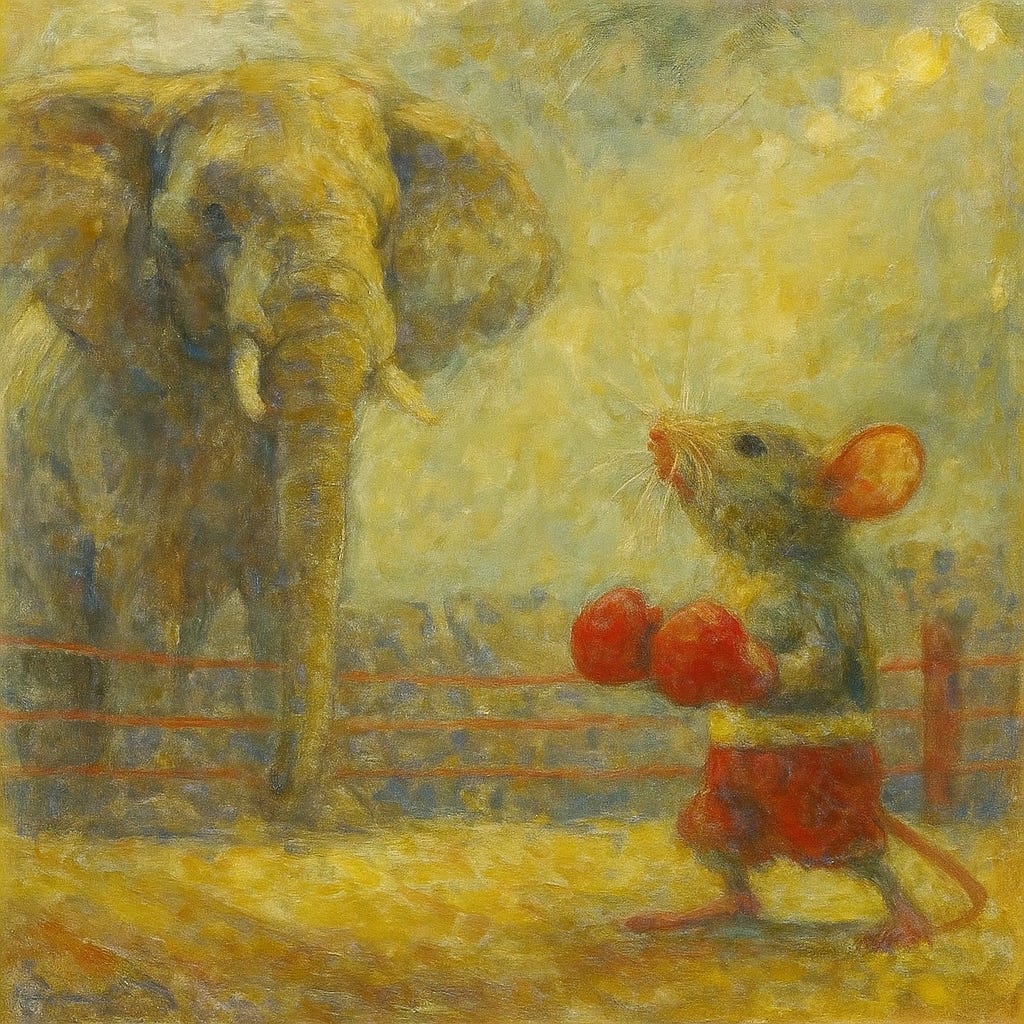Five Reasons We Are Delusional
(Five Delusions That Keep Us Sane and Shopping)
You’re here, poking around for wisdom, wit, or maybe just procrastinating with flair. That’s fine. But let’s not pretend this is some philanthropic stroll through the free market of ideas. You’ve paid more for lukewarm oat milk foam at a chain that spells your name wrong.
This Substack brews stronger stuff—bold, bitter, and with no syrupy aftertaste of consensus. It’s sharp, caffeinated contrarianism for the cost of your daily dopamine drip. Everyone says, “It’s just the price of a cup of coffee.” Well, true—maybe. So as you shuffle up to the Substack counter, eyes glazed with curiosity, go ahead and order mine.
Oh, just to let you know. The government pays fifty per cent of journalism wages in Canada, but zip for Freedomtoffend.com. There is no compulsion to be unnecessarily positive. No one has ever accused me of that. Everything is from subscriptions.
____________________
When I floated this title past an old friend, he smirked and said, “But I am 100% self-aware.” Oh, the irony—it’s a one-line melodrama worthy of Shakespeare.
If we truly grasped our pitiful lack of control, our laughable flaws, and the cosmic indifference staring us down, most of us would be barricaded in a basement, cradling a bottle of cheap gin and cursing existence.
Thank the stars, then, for self-delusion, that glorious evolutionary glitch that keeps us strutting forward with unearned swagger, blind optimism, and the daft notion that we’re running the show.
Even old Jeremiah nailed it: our hearts are deceitful little b*******, and who can fathom them? When reality clashes with our puffed-up self-image, we dodge the truth to protect our fragile egos, because staring into the abyss full-time might just break us.
Studies hint that depressives, with their grim “realism,” see the world more clearly, but try bragging about that at a party. So, what delusions keep us ticking—and, more to the point, keep us shopping like fools?
1. The Illusion of Control: Lords of the Checkout Line
Behold the illusion of control, humanity’s pet fairy tale. We clutch it tighter than a toddler with a lollipop, especially when we’re flashing plastic at the till. Determinists like Sam Harris might scoff, insisting our choices are just echoes of biology and fate, but marketers don’t care—they’re too busy raking in profits.
Remember Coca-Cola’s “Share a Coke” stunt? Slap your name on a can for CAD 2, and suddenly you’re not just chugging sugar water; you’re a customised beverage maestro.
The Journal of Consumer Research backs this up: dangle a shred of control—like letting suckers pick a flavour or spin a discount wheel—and they’ll buy more, basking in their imaginary power. Starbucks milks this dry: tweak your CAD 6 coffee with almond milk and a dash of self-loathing, and you’re not a cog in their machine—you’re a barista god. The kicker? You’re controlling nothing. The menu’s rigged, but the illusion keeps you hooked.
Lottery tickets are the crown jewel here. Punters snatch them up for CAD 5, picking “lucky” numbers like they’re cracking a cosmic code. You get to choose!
Spoiler: the odds don’t care about your nan’s birthday. It’s chaos, but the illusion of control turns you into a gambler with a mission—deluded, broke, and loving it.
Daniel Kahneman, the Nobel-winning psychologist, nails this concept in Thinking, Fast and Slow with his research on the overconfidence bias. We overestimate our sway over outcomes, and brands pounce on the opportunity. That “personalised” website option? It’s not your genius at work; it’s their script. Kahneman and Tversky’s data show we’re suckers for this, buying CAD 10 scratch-offs with “lucky” numbers as our fate’s chosen.
Newsflash: the odds don’t give a damn about your cousin’s birthday. It’s a chaotic lottery, but we strut like puppet kings.
2. Overestimating Abilities: The DIY Disaster Zone
Then there’s the better-than-average effect—our smug conviction that we’re sharper than the average bear. It’s catnip for consumer traps. Ever nabbed a CAD 50 stock-trading app, dreaming of Buffett-level riches?
The Journal of Finance laughs in your face: overconfident traders tank harder, yet the apps multiply, feasting on our hubris. Or that CAD 340 food processor you swore would make you Gordon Ramsay—now it’s a glorified paperweight because you can’t boil water.
Research calls this “feature fatigue”—we crave fancy tools, then flop. Marketers adore our overreach; they sell us a mirage of skill we’ll never master.
Smart gadgets are the poster child. You snag a CAD 200 Wi-Fi kettle, certain you’ll brew tea like a tech wizard. Three weeks later, you’re yelling at it because the app’s gibberish.





